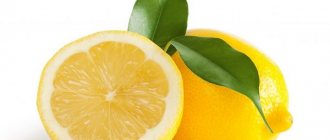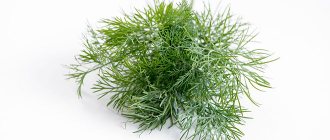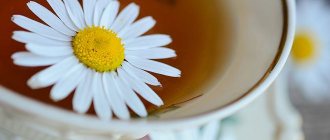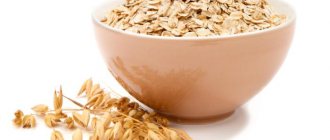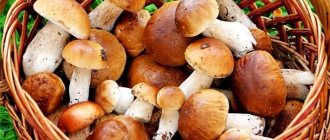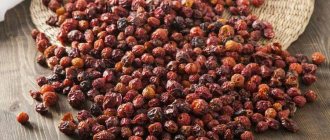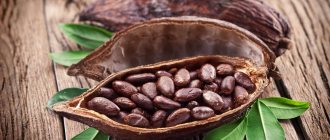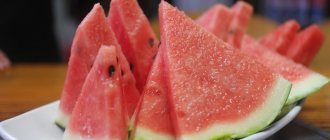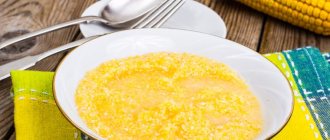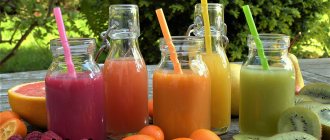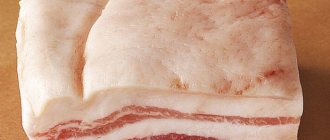The benefits of ginger for a nursing mother
Hot spice has a beneficial effect on women and babies due to its biochemical composition. The root contains many useful components:
- vitamins B2, B4, B5, B6, C, E, PP;
- minerals – potassium, magnesium, calcium, phosphorus, copper, iron, zinc;
- amino acids;
- essential oils;
- omega-3, omega-6 fatty acids;
- purine compounds.
During breastfeeding, ginger during the recovery period after childbirth will speed up the process, help cope with postpartum depression, and lose weight. The product strengthens blood vessels, lowers cholesterol levels, and enhances the body's defenses. Regular consumption improves cerebral circulation and digestion.
The medicinal properties of ginger for nursing mothers with colds and coughs have long been known, because medications are prohibited during lactation. The spice accelerates metabolism and has antispasmodic and anti-inflammatory effects. Helps against dizziness, migraines, bloating, menstrual irregularities.
Is it possible to use ginger root during lactation?
Like any medicinal plant, ginger has its pros and cons. Therefore, there are several clear indications and acute contraindications for its use. So there is no clear and definitive answer to the question “can a nursing mother take ginger?” One thing can be said: if a woman drank ginger teas during pregnancy, and this did not in any way affect her general condition or the health of the fetus, then no negative manifestations will follow. But you need to start using it carefully, with small dosages, keeping an interval of 2 days.
During lactation, a mother who decides to drink ginger drinks and use the root in other forms should carefully monitor the child’s reaction. If your baby begins to act too restless and overly active, it may be worth rethinking the need to use the product and change your mind. From this we can conclude that ginger is not strictly contraindicated for nursing women, but before using it yourself, you should consult with your pediatrician. Otherwise, there is a possibility of negative consequences for the new mother and child.
Possible harm and contraindications
Excessive consumption of the product can cause digestive upset and allergic reactions.
Before including it in your diet, you should check with your pediatrician whether it is possible to eat ginger while breastfeeding or whether it is better to abstain for now. It is necessary to take into account the health status of the baby and its individual characteristics, since spice can be harmful. General contraindications to the use of ginger root:
- personal intolerance;
- stomach or intestinal ulcer;
- cholelithiasis;
- cirrhosis of the liver;
- hepatitis;
- arrhythmia;
- hypertension;
- haemorrhoids;
- bleeding.
On a note! When breastfeeding, ginger is harmful for poor blood clotting, postpartum discharge, and during the menstrual cycle.
Can I take ginger while breastfeeding?
You can use the spice during lactation in limited doses, following the basic recommendations of experts. Exceeding the permitted dosages will negatively affect the health of the nursing mother and baby. The product can be used for making tea and as a spice for hot dishes.
The use of the spice before and during pregnancy is in favor of diversifying the diet with ginger during breastfeeding. If there are no negative manifestations, most likely a baby older than 3 months will also tolerate a small amount of a beneficial supplement in mother’s milk. If the desire to try the spice for the first time arose after the birth of the baby, then postpone the tasting until 6-7 months.
Do not overuse ginger during breastfeeding
Does ginger affect lactation?
This product is a natural means of increasing milk production. It is recommended to drink a warm drink 20-30 minutes before feeding the baby, then lactation will be enhanced not only by the substances contained, but also due to the warm liquid there will be a flow of milk. The calming, strengthening effects of ginger will help a nursing mother establish breastfeeding, since stress and overwork often cause insufficient milk production.
On a note! The spice can lead to hyperlactation, so it should be used with caution.
Effect on the baby
You should be careful when trying hot spices while breastfeeding, as allergic reactions and indigestion are possible. If a rash, diarrhea or constipation appears, or increased regurgitation, you need to remove it from the diet. When taken by the mother in small dosages, side effects in the baby can only occur due to individual intolerance, which rarely happens. In other cases, he will receive an additional useful supplement through milk.
Ginger can cause an allergic reaction in infants
Can I eat ginger while breastfeeding?
Ginger is recommended for breastfeeding as a natural lactogen.
Effect on lactation
Consuming ginger during lactation affects not only the mother, but also the child. We should not forget that ginger is a medicinal plant. For nursing mothers, this spice is attractive because it is a natural lactogenic (lactation stimulating) agent.
Expert opinion
Sokolova L. S.
Pediatrician of the highest category
If a nursing mother has hyperlactation, drinking ginger tea is unacceptable, as it may cause more harm than good.
If there is not enough milk for the baby during breastfeeding, doctors recommend the following recipe:
- Take two tablespoons of chopped or grated ginger and place in a teapot for brewing.
- Pour boiling water over it.
- Drink the infusion 30 minutes before feeding 3-5 times a day.
Rules of use
Compliance with the basic recommendations for introducing it into a woman’s diet while breastfeeding will help avoid side effects of the product.
Ginger during lactation must be added to the menu, following the rules:
- Try the spice 3-4 months after giving birth, if the woman used it regularly before pregnancy. Otherwise, dating should be postponed until 6-7 months.
- Increase the dosage gradually, starting with a small pinch.
- If there are any negative changes in the baby’s condition, remove the new ingredient from the diet.
- Frequency of use: 3-4 times a week.
- Keep a food diary.
On a note! Ginger is contraindicated when taking certain medications (for the heart, diabetes, lowering blood pressure or blood clotting), so when treating yourself or your child, you should notify your doctor about the use of the spice.
Ginger as a medicine for breastfeeding
Ginger is an excellent remedy for colds
Breastfeeding limits a woman's use of medications. Most of them are contraindicated, so you have to turn to traditional medicine. Ginger is a well-known medicine. The most popular are recipes based on it against colds and severe lingering coughs.
When breastfeeding, the root is recommended to be used to enhance lactation, and also as an external remedy against lactostasis. Tea will give you strength after a sleepless night, overwork, act as a sedative during stress, and improve your mood during depression. Ginger speeds up metabolism and is used for weight loss, so when breastfeeding it is one of the small list of products allowed for weight normalization. The analgesic effect is used for menstrual pain and migraines.
Ginger for lactostasis
Stagnation of milk can cause a lot of inconvenience to a nursing woman. If you can’t see a doctor, you can try using a warm compress 3 times a day. Grate fresh peeled ginger on a fine grater, pour boiling water over it, and leave for 5-10 minutes. Wet a clean towel with the mixture and carefully place it on the sore chest, being careful not to burn yourself. After cooling, dip into the infusion again. The duration of the procedure is 10 minutes. Next, express the milk and attach the baby.
On a note! If there is no improvement, the temperature rises, you need to contact a specialist as soon as possible.
Recipe for colds
When breastfeeding, a mother should not be sick for a long time, as the risk of infecting the baby increases. In traditional medicine, the use of tea with ginger against the manifestations of acute respiratory viral infections, acute respiratory infections, influenza, and cough is common. To enhance the effect, you can add to the main recipe:
- raspberries;
- lemon;
- honey;
- licorice;
- rose hip;
- badger fat;
- spices;
- pomegranate juice.
On a note! Many of these components can cause allergies in infants, so before preparing a healing drink, you should make sure that your baby can tolerate them.
To make tea you will need fresh root. It is acceptable to use dried, but the effect may be less pronounced. Peel a small amount of ginger. For 1 teapot, 0.5-1 tsp is enough. crushed product. Grate the root, put it in a teapot, and add 1 tsp if desired. black or green tea. Pour boiling water over and leave for 15-20 minutes. Stir the infusion, pour into a mug, add raspberries or another ingredient from the list.
In what form can ginger be used for breastfeeding?
It is advisable to choose fresh root and use it for cooking. Ginger-based drinks are popular. To prepare them, use fresh or dried product. Instant products may contain harmful components, so it is not advisable to buy them when breastfeeding, despite the ease of use.
Ginger can be eaten by cutting it into thin slices or making candied fruit from it. The latter are an excellent substitute for sweets that are limited during lactation. Pickled products are prohibited during this period. It should also be taken into account that, regardless of the form of use, the permitted dosage must be observed.
Ginger tea recipe
Components for the classic version:
- ginger – 10 g
- lemon – 1 pc.
- natural honey – 50 g
- water – 500 ml
Cooking method:
Peel the root and chop on a fine grater. Pour boiling water, add the juice of ½ lemon. Wrap the teapot and leave for 25-30 minutes. Stir the infusion, add ½ lemon slices and honey.
Pickled ginger
The product is classified as a spicy spice. In addition to contraindications for using ginger while breastfeeding, the negative effects of additional components are added. This is especially true for rice vinegar, its cheap substitutes used in the food industry to reduce production costs. For this reason, pickled ginger is a prohibited product when breastfeeding. Sometimes you can treat yourself to it by eating a small piece. But you can try it only after 6 months and provided that the baby is not allergic to the main ingredient.
Can it be used during breastfeeding?
Let's figure out whether it is possible or not to use ginger root during breastfeeding. In moderation - yes. But with reservations: the method of preparing the root vegetable is important - the amount and balance of useful or, conversely, harmful substances and their effect on the body depends on this.
Pickled ginger (or any marinades too) should not be included in the diet of a nursing mother.- Because of gingerol, dried ginger is more pungent than fresh ginger (its concentration is higher in the dry form, and part of the original substance is converted into shogaol, an even more pungent substance), so it should not be used during lactation.
- Ginger should not be used as part of seasonings either, because... they may contain chemical impurities and other spices.
Thus, fresh ginger and making tea from it are the best options . Fresh root vegetables contain more vitamins (groups B and C), microelements and amino acids for which they are famous.
You can include ginger in your diet only when your baby is six months old.
Rules for choosing in the store
The main requirement for ginger is freshness, because the younger the root and the less it has been stored, the more nutrients it contains. It is advisable to choose products from Asia rather than Africa, which can be determined by appearance. High-quality root is golden, with a thin matte skin, and has a mild taste. The African one is darker and very bitter.
The product should not smell moldy or damp. The fresh root is hard, smooth, elastic, there are no dents when pressed, and there are no flaccid areas. The more rounded branches, the better, but awakened buds and fresh shoots indicate that the shelf life has long expired. Store in the vegetable section of the refrigerator, wrapped in cling film.
Ginger during breastfeeding is allowed for use in limited quantities unless the infant is intolerant. Following the rules of use will allow you to diversify your diet with healthy spices without harm to the baby’s health.
Recipe for making ginger tea while breastfeeding
To prepare healthy ginger tea while breastfeeding, you need to take:
- ginger root;
- boiled water;
- usual tea leaves, sugar, lemon or honey.
The fresh root is peeled, grated, and poured with a small amount of boiling water. Infuse and drink in pure form or with the addition of the above ingredients. A tea break will not only replenish the supply of vitamins, but will give mom a little rest, enjoy the pleasant aroma and spicy taste.
Lifehack! To easily peel the ginger root, you can use a teaspoon and scrape off the top layer of ginger.
